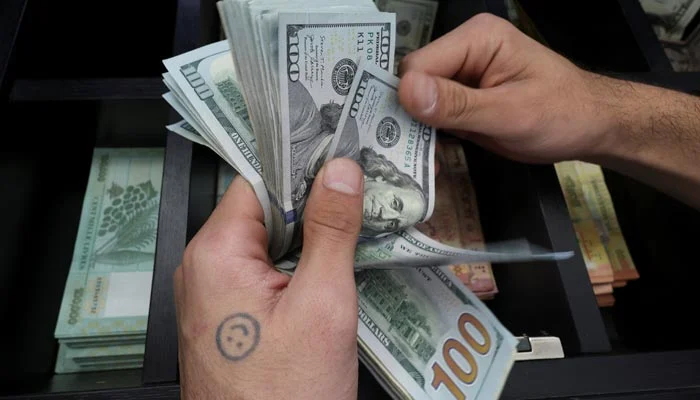- IMF likely to get written guarantee from UAE this week.
- Matters have been finalised with UAE authorities, sources say.
- Finance secretary will inform IMF officials about the development.
ISLAMABAD: Pakistan is moving closer to securing its loan from the International Monetary Fund (IMF) as United Arab Emirates (UAE) is likely to assure the global lender that it will provide a $1 billion financing to help the nation avoid a default by this week, Geo News reported citing sources.
The sources said that the UAE is likely to provide a written guarantee regarding $1 billion financing this week and the news will be conveyed to the Fund officials by the Finance Secretary Hamed Yaqoob Sheikh during the annual meeting currently being held in Washington.
The IMF has asked Pakistan to secure assurances on external financing from friendly countries and multilateral partners to fund its balance of payment gap for this fiscal year, which ends in June.
Last week, Saudi Arabia pledged $2 billion and informed the IMF it will provide financing to Pakistan. However, the agreement with the IMF still rests on a similar commitment from the UAE for a $1 billion loan.
Well-placed sources in the Ministry of Finance confirmed that matters have been finalised with the UAE and as as soon Pakistan receives a written guarantee from the Washington-based lender will receive confirmation.
The development comes after Prime Minister Shehbaz Sharif and Finance Minister Ishaq Dar requested the UAE officials in order to complete the prerequisites of the Fund.
The cash-strapped nation of 220 million people is going through one of its biggest economic crises in history as it raised interest rates to an all-time high after consumer prices quickened to a fresh record.
IMF lowers growth forecast
Meanwhile, IMF has cut its growth forecast for the country to 0.5% from the 2% estimate earlier as the nation faces a dollar shortage, leading to supply chain disruptions and companies stopping production.
The Fund is also assessing the coalition government’s proposed fuel discount that it plans for lower income groups by raising fuel prices for wealthy motorists; however, the finance minister had said that IMF has been provided with all required information.
Dar — who cancelled his trip to Washington where he was scheduled to hold in-person meetings with the IMF officials on the sidelines — has time and again claimed that the staff-level agreement with the Washington-based lender would be reached soon; however, the claims have proved to be futile.
Islamabad has been hosting an IMF mission since late January to negotiate a series of policy measures to secure $1.1 billion in funding for the cash-strapped economy, which is on the verge of collapse.
The funds are part of a $6.5 billion bailout package the IMF approved in 2019, which analysts say is critical for Pakistan to avert defaulting on external payment obligations.
The deal will also unlock other bilateral and multilateral financing avenues for Pakistan to shore up its foreign exchange reserves, which have fallen to four weeks’ worth of import cover, and help it steer out of a balance of payment crisis.

 Latest News10 hours ago
Latest News10 hours ago
 Latest News10 hours ago
Latest News10 hours ago
 Business10 hours ago
Business10 hours ago
 Entertainment10 hours ago
Entertainment10 hours ago
 Latest News10 hours ago
Latest News10 hours ago
 Latest News5 hours ago
Latest News5 hours ago
 Latest News5 hours ago
Latest News5 hours ago
 Latest News5 hours ago
Latest News5 hours ago























